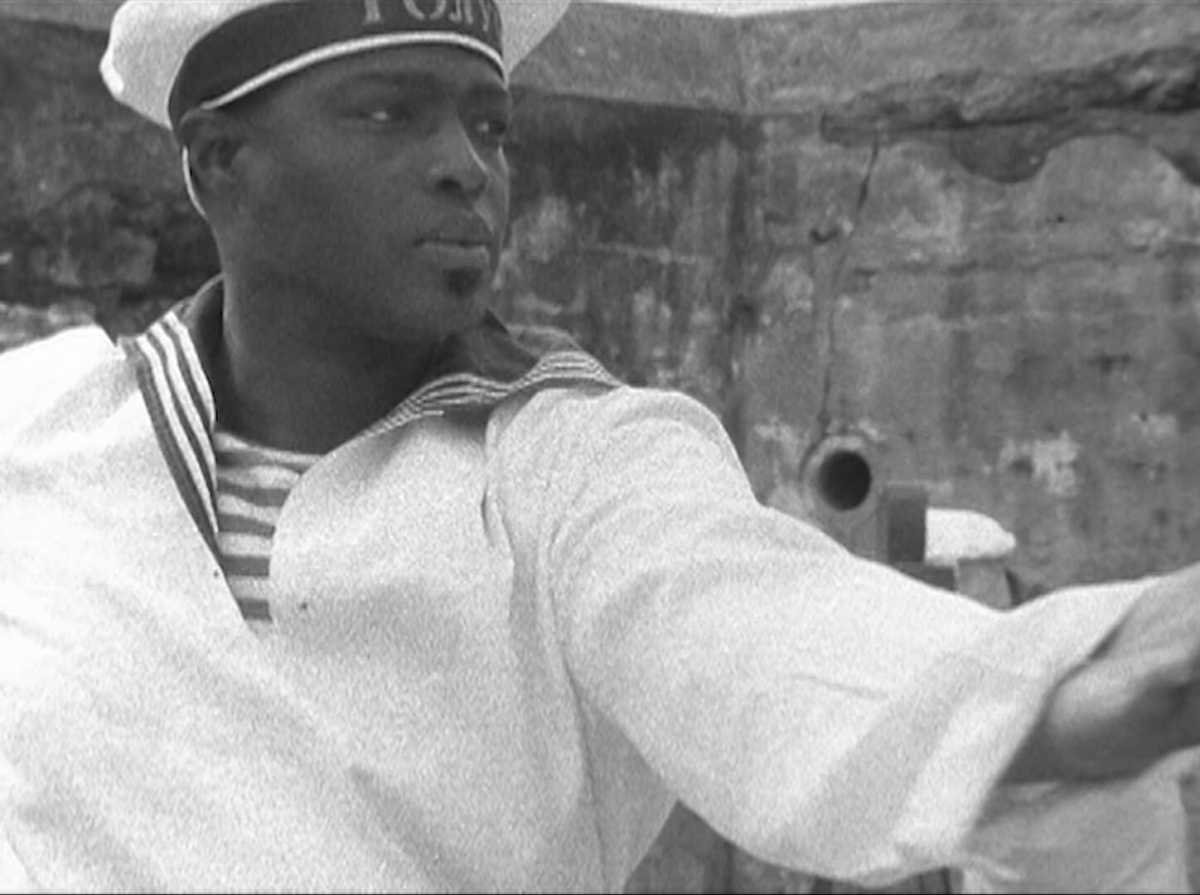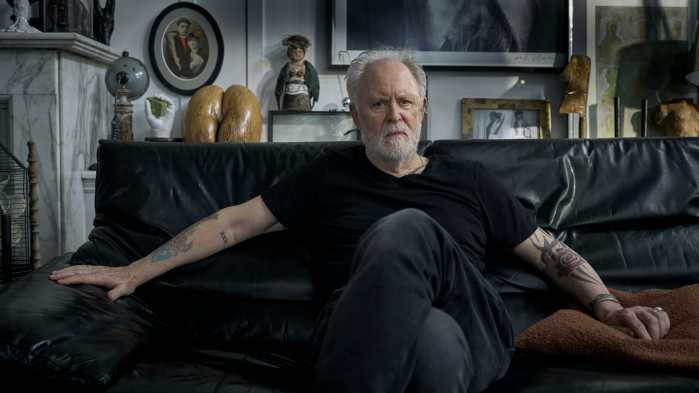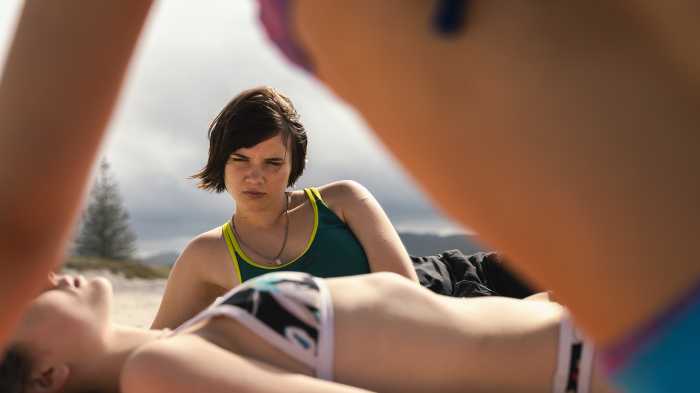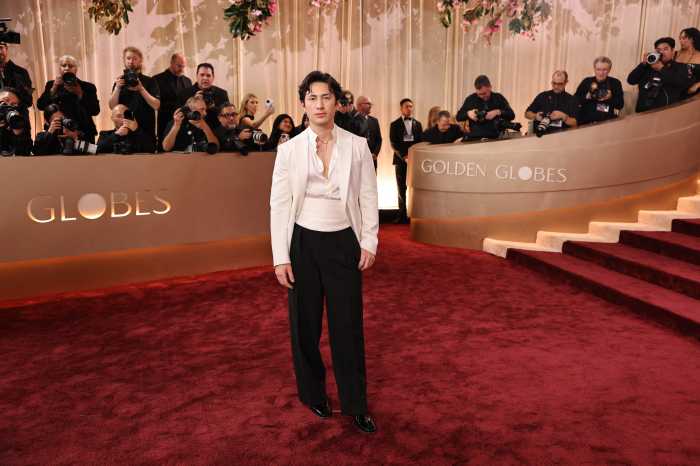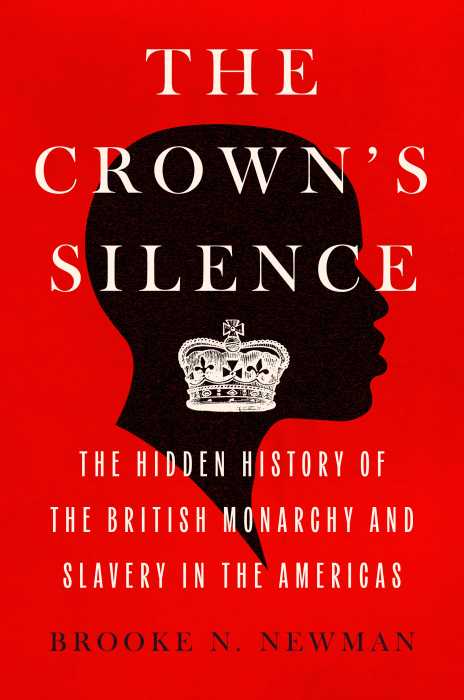Overlapping with Transgender Awareness week is a five-day film series at BAM, curated by Jenni Olson and Caden Mark Gardner, that showcases a handful of international features, shorts, and documentaries representing trans and masculine presenting individuals. Each film provides fascinating insights and observations about gender.
Here is a rundown of seven highlights from the program, which was originally curated for the Criterion Channel. (All of the films, as well as various shorts and a few features and documentaries not playing at BAM, are available on the Criterion Channel through the end of the month.)
“Lifetime Guarantee: Phranc’s Adventures in Plastic” (2001; Nov. 17 at 7:00 pm) is a genial, hour-long documentary about the “All-American, Jewish, lesbian, folk singing, surfing, Tupperware Lady,” Phranc, selling popular kitchen products. With her flattop haircut and a nifty bowtie, Phranc has tremendous success as a Tupperware salesperson. She hosts parties, amusingly shills a baster, and even gets an appearance on “The Donnie & Marie Show,” where she explains that Tupperware doesn’t burp, “It whispers.” Director Lisa Udelson features vintage film clips and uses nearly a dozen of Phranc’s catchy songs as she attends events and conferences, as well as Jubilee, a special event for high-earning salespeople. “Lifetime Guarantee” includes some episodes of Phranc being misgendered and she talks about dressing in a suit (rather than a gown), but mostly this documentary is about how Tupperware improved Phranc’s life.
“Vera” (1986, Nov. 18 at 2:00 pm) is a sensitive portrait of Vera renamed Bauer (Ana Beatriz Nogueira) who was raised in an orphanage. (Scenes depict his experiences, which range from tough to tender, including a request for Bauer to “stop the tomboy business.”) Now 18, Bauer gets a job with the help of Professor Paulo (Raul Cortez), who treats him kindly and appreciates his poetry. He warns Bauer that folks may show prejudices because of his gender identity. At work, Bauer falls for Clara (Aida Leiner), and dedicates a poem to her. However, Clara, a single mother, is not queer. Yet things become complicated as Bauer expresses jealousy when Clara connects with a man, or during a moment of intimacy, when Clara unbinds Bauer’s breasts. “Vera” is a slow, stylized film that shows the difficulties its transmasculine title character faces. When Bauer claims he is “fed up,” it is quite powerful. This landmark Brazilian film was ahead of its time.
“No Ordinary Man” (2020; Nov. 18 at 7:00 pm) is Aisling Chin-Yee and Chase Joynt’s remarkable, thoughtful documentary that investigates the impact and legacy of the late jazz musician Billy Tipton. Presenting as male, Tipton has become a hero to the trans community. “No Ordinary Man” interviews trans actors, activists, and scholars to unpack issues of identity creation, passing, and (in)visibility, as well as gender and sexuality. The interpretations of Tipton’s life and “trans narratives of deceit” are shrewdly explored as talk show segments and audio recordings featuring Tipton’s wife and his biographer, Diane Middlebrook, reveal attitudes and judgments about the jazz musician. But the strength of this documentary is not only in the telling of Tipton’s story, but also in how it acts as a springboard for the trans community to give voice to their stories of identification, visibility, and self-worth.
“Maggots and Men” (2009; Nov. 19, 2:00 pm) by trans director Cary Cronenwett, is an experimental Russian-language film that reportedly features the largest cast of trans actors. It tells the story of the Kronstadt Uprising of 1921 against Russia’s new Bolshevik government. The narrative unfolds through letters Stephan Petrichenko (Stormy Henry Knight) writes to his sister, Anya, about his life as a sailor. His experiences, which include homoerotic exercising and skinny dipping as well as a romance with fellow sailor Yuri Kilgast (Travis Clough), soon segue into the political, as opposition to the government escalates into rebellion and mutiny. Cronenwett filmed “Maggots and Men” in stylized black and white, cross-cutting between a stage play recounting the history and scenes with Stephan on and off the ship. The approach recalls Guy Maddin crossed with gay filmmaker Sergei Eisenstein. “Maggots and Men” is playful, poetic, and polemical all at once.
“The Aggressives” (2005; Nov. 19, 4:30 pm) is a fantastic, illuminating documentary that profiles a handful of studs, butch, trans, or masc individuals. Through interviews and observational footage, director Daniel Peddle lets his subjects talk about how they identify, their gender and sexuality, their ideas about beauty, as well as their relationships with family, friends, and lovers. As their lives evolve over the course of five years, tomboy Marquise enters the military, Octavio spends time in jail, and Kisha finds work as a model. Through various vignettes, each subject offers poignant reflections on their lives as they talk about what it means to identify as masculine and love women. The film was groundbreaking when it was made, and a worth a(nother) look.
Note: the film is also playing with its brand new sequel, “Beyond the Aggressives: 25 Years Later” Nov. 16 at the Quad Cinema with a Q&A with director Daniel Peddle and subjects from the film. “Beyond the Aggressives” will then open for a weeklong run (at least) with select Q&As on Nov. 17-18.
“Chavela” (2017; Nov. 20 at 7:00 pm) is a vibrant documentary portrait of Chavela Vargas, the ranchero singer whose emotional performances won her legions of fans around the world. A lesbian who dressed like a man — she wore pants before it was fashionable for women to do so — Chavela but could not be openly gay off stage. However, she did open doors for lesbians in Mexico. She had many love affairs, and relationships with women, even befriending Frida Kahlo for a spell. When her career hit the skids, Chavela was broke and became an alcoholic. She was “reborn” in Spain, where a whole new set of fans, including filmmaker Pedro Almodóvar, embraced her. “Chavela” uses archival clips, interviews, and fabulous performance footage to tell the story of this underknown singer who, as one interviewee explains, “fought for freedom and equality in music and sexuality.”
“Shinjuku Boys” (1995; Nov. 21 at 7:00 pm) is an absorbing portrait of three onabe (women who live as men) who work at Club Marilyn, catering to straight female clients. Gaish passes as male and says, “I don’t think I’m a girl or a boy; I’m just me.” Kazuki uses a binder, and is in a relationship with Kumi, a transgender performer who “started life as a man.” They talk about expected gender roles, and in one very moving scene, Kazuki discusses her relationship with her mother. The third subject is Tatsu, who is taking hormones, and has a girlfriend Tomoe. They discuss marriage and children (and the unlikeliness of that). In addition to the revealing interviews, which address how each subject navigates sex and gender, there are some terrific club and performance scenes.
For more information, visit bam.org and criterionchannel.com. | “Beyond the Aggressives” at the Quad | “Masc Film Series” Nov. 17-22 at BAM; on The Criterion Channel through Nov. 30.

